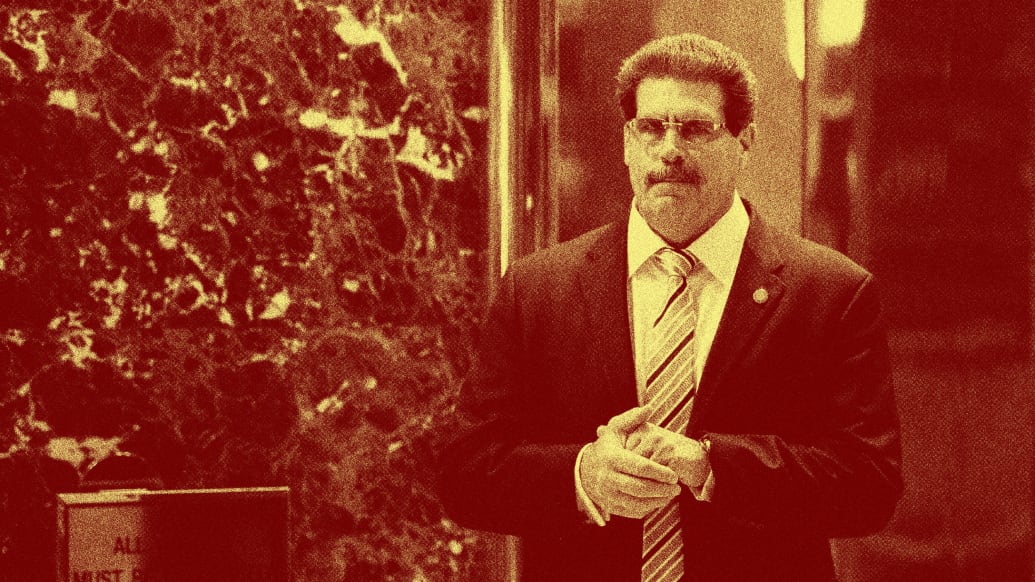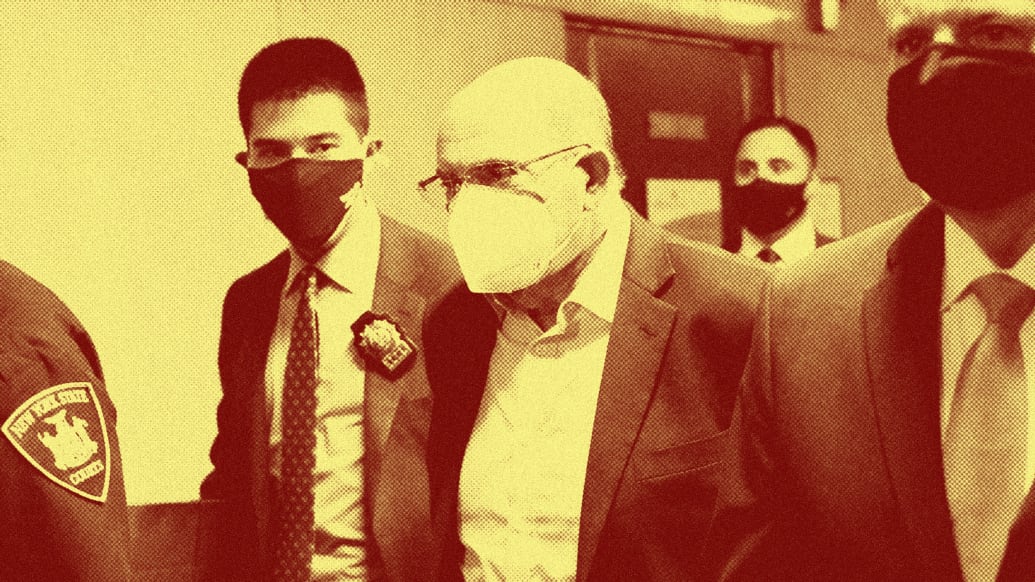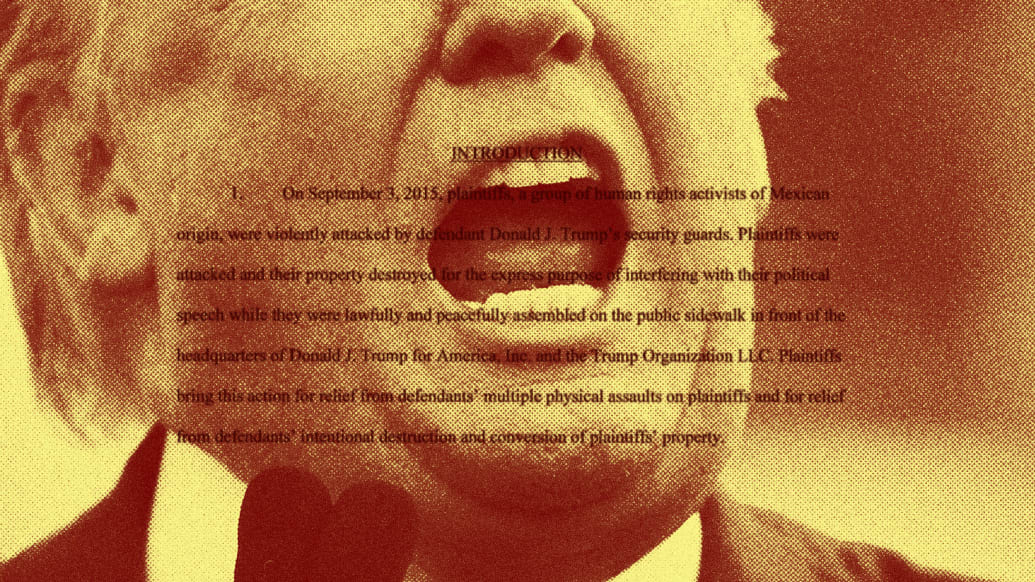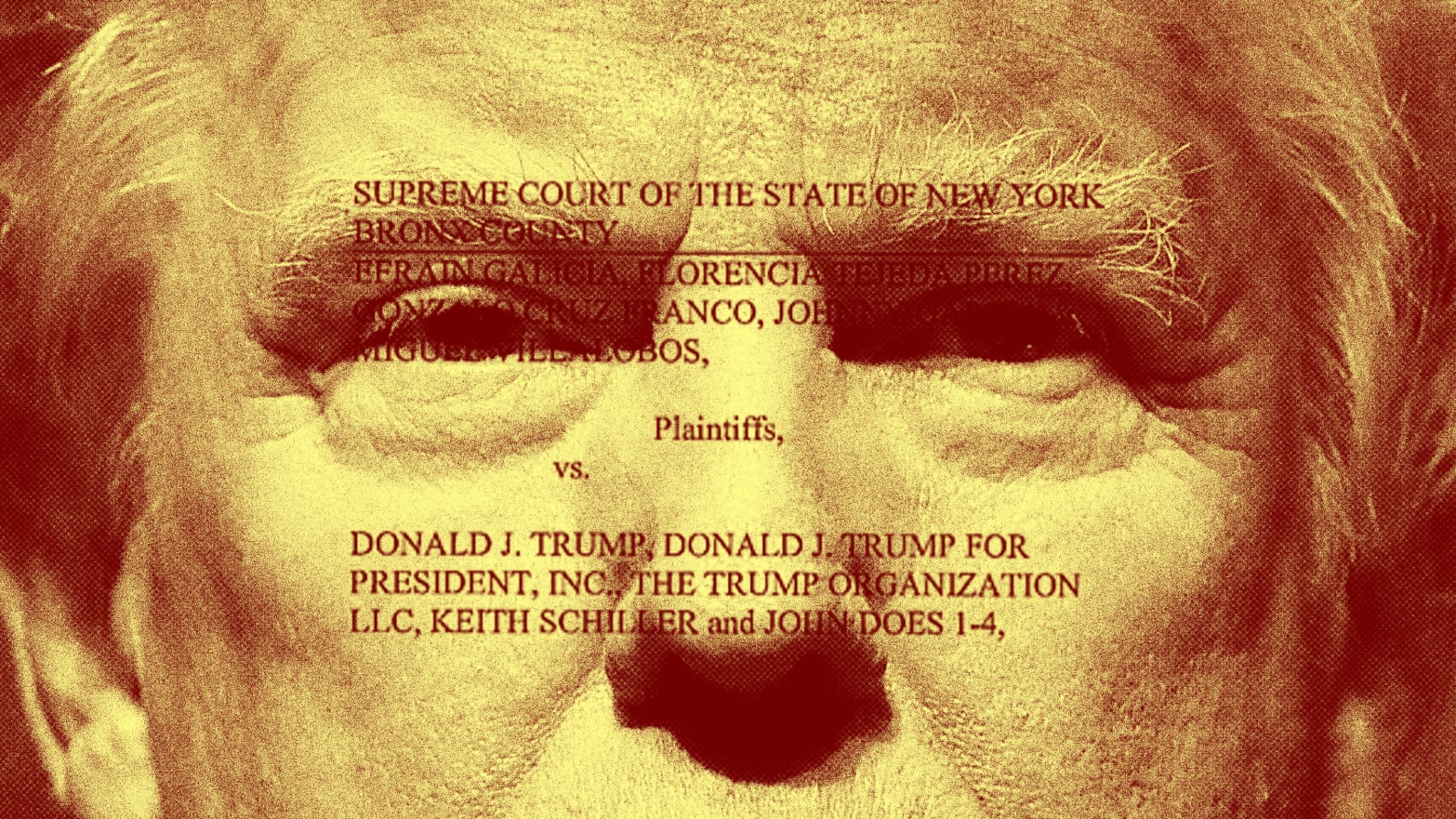In a lawsuit’s never-before-seen testimony, Donald Trump admitted to personally overseeing the compensation of an executive whose corporate perks have been under scrutiny by the Manhattan district attorney, potentially strengthening the case against the former president and his company for tax fraud.
Trump’s sworn testimony was filed in New York state court on Tuesday, as part of a lawsuit against the Trump Organization over the way its security guards manhandled protesters outside Trump Tower in 2015.
According to a transcript of the Oct. 18, 2021, deposition, Trump repeatedly asserted that he—and only he—oversaw the way Matthew Calamari Sr. was paid for his work as the family company’s chief operating officer.
“It would be me,” Trump repeatedly said, when asked who had “authority” over Calamari’s compensation.
That would potentially make Trump personally responsible for any tax dodging scheme, and more importantly, is useful evidence in the grand jury investigation that has yet to produce an indictment against him.

Matthew Calamari in 2017.
Photo Illustration by Elizabeth Brockway/The Daily Beast/Drew Angerer/Getty
“That statement sounds as though it is adverse to Trump’s pecuniary interests, and therefore is admissible against him. Even though it’s made out of court and is hearsay,” said John Moscow, a renowned former prosecutor who spent 33 years at the Manhattan DA’s office.
For months, three sources familiar with the Manhattan DA’s investigation have told The Daily Beast that investigators have been probing the way Calamari was paid off-the-books with allegedly untaxed perks, such as an extravagant corporate apartment at the Trump Park Avenue in New York City’s expensive midtown and a Mercedes-Benz. Prosecutors went as far as having Calamari’s son—corporate security director Matt Calamari Jr.—receive total immunity for potential crimes and testify before a grand jury.
The circumstances are similar to the “fringe benefits” case that prosecutors have launched against the Trump Organization and its former chief financial officer, Allen Weisselberg, who were indicted last summer for tax fraud. Both were charged with criminal tax fraud, and Weisselberg faces trial this upcoming summer for receiving hundreds of thousands of dollars in corporate perks in lieu of on-the-books, taxed salary.
Weisselberg received a luxury apartment and tuition for his grandchildren’s costly private school.
In Calamari’s case, Manhattan DA investigators have been asking about the corporate perks since at least February 2021, according to one witness who was interviewed by prosecutors. It was clear to several witnesses that prosecutors had hoped to leverage a long-standing feud between the Calamari and Weisselberg families, a Shakespearean drama over who’s more loyal to the boss.
However, formal charges have yet to materialize against the elder Calamari. And prosecutors late last year indicated they had no current plans to indict him, according to his defense lawyer, Nicholas Gravante.
Prosecutors could present these newly available statements to the grand jury as additional evidence tying Trump to whatever illegal payment scheme the DA’s office is alleging took place at the Trump Organization. It would be a rare feat in a place like New York, where the court rules are far more strict than most other venues.
In most states and in the federal judicial system, grand juries can consider evidence that’s deemed hearsay, otherwise defined as statements made out of court. (The downside is that those jurors can’t observe a person’s physical demeanor or gestures to gauge how to accurately interpret what they’re saying.) Meanwhile, grand juries in New York typically only consider something if a witness comes in person and testifies under oath.
However, three former prosecutors told The Daily Beast that New York allows for a narrow exception: hearsay is allowed if a person is essentially self-incriminating.
“Statements made in a civil deposition are admissible in a criminal proceeding against the person who made the statement. That’s why people can invoke their Fifth Amendment protections against self-incrimination at civil proceedings as well as criminal,” said Adam Kaufmann, a partner at the law firm of Lewis Baach Kaufmann Middlemiss who previously served as chief of the Manhattan DA’s investigative division.
In this case, Trump did not stay quiet. And the Trump Organization actually boasted about how forthcoming their boss was at this deposition.
“President Trump answered every single question that was asked of him at his deposition today. There was not a single question he did not answer,” Trump spokesperson, Amanda Miller, told The Daily Beast at the time.

Allen Weisselberg in 2021.
Photo Illustration by Elizabeth Brockway/The Daily Beast/TIMOTHY A. CLARY/AFP/Getty
The civil case at hand was sparked by Trump’s own June 2015 speech announcing his presidential run, when then-candidate Trump referred to Mexicans as “rapists” and “killers.” Queens resident Efrain Galicia and others decided to protest on the public New York City sidewalk outside Trump Tower to highlight the racism in those statements. Videos show how company security guards ripped their signs away and punched Galicia when he tried to get it back. Galicia and others sued on Sept. 9, 2015.
Fast forward five years to Oct. 18, 2021, and the former president is now sitting in Trump Tower for a sworn deposition.
Galicia’s lawyer, Benjamin N. Dictor, questioned Trump about the incident and the various security guards who handled it. But the Monday morning session took a turn when Dictor repeatedly asked about Calamari, who once served as Trump’s personal bodyguard.
Trump recalled how he hired Calamari after watching him tackle hecklers at a 1981 tennis match, describing how the security guard rose through the ranks over the years and eventually came to manage several company properties.

Donald Trump in 2015.
Photo Illustration by Elizabeth Brockway/The Daily Beast/Getty/Handout
Dictor asked Trump who at the company made the decision to increase Calamari’s compensation with various promotions.
“I imagine it was primarily me,” Trump responded.
The attorney asked different versions of the question three more times, and the answer remained the same. Dictor even got Trump to admit that he alone had the power.
“Has there ever been a time from the time Mr. Calamari has hired until Sept. 3, 2015 when any other employee of the Trump Organization had authority over Mr. Calamari’s compensation?” Dictor asked.
“It’s a specific question, but I would say that if the children would have gotten together and recommended it, that would have been fine, too, you know. No, but generally it would be me,” Trump said. “I’m the owner.”
A Trump spokesperson did not immediately respond to a request for comment.
Calamari’s lawyer told The Daily Beast late Tuesday night that he’s still not worried in the slightest that prosecutors will use this as a reason to pursue a criminal case against Trump’s former bodyguard.
“Absolutely no concern. Matt is, and has always been, a model citizen,” Gravante said.


